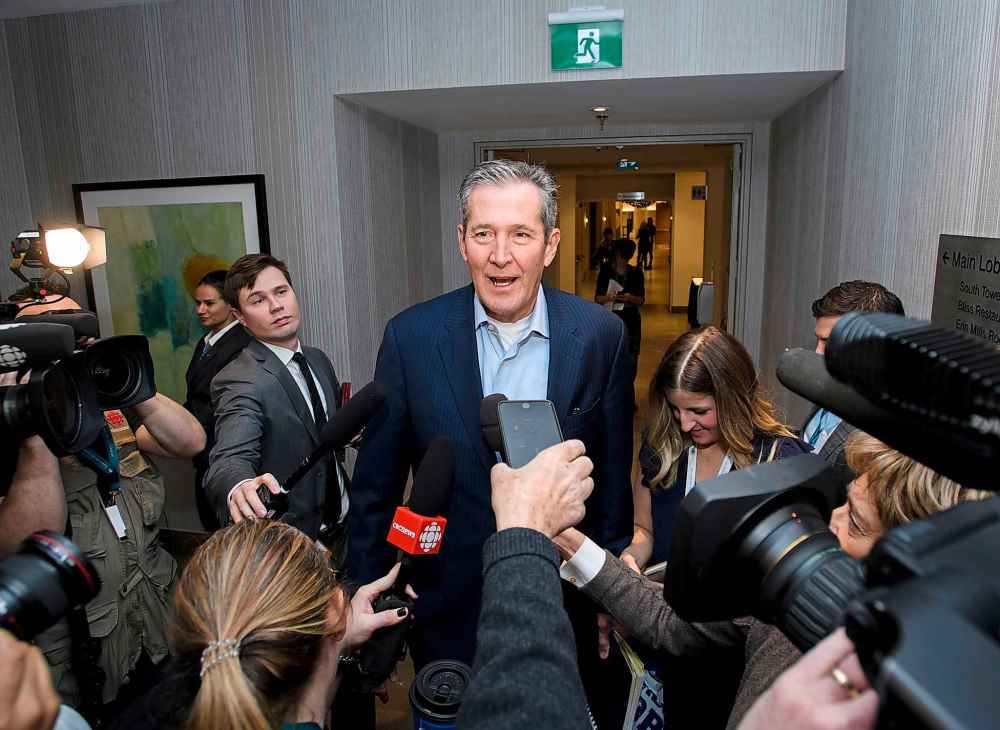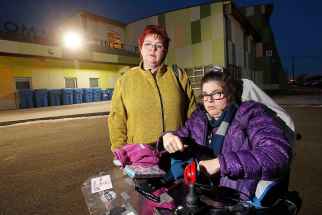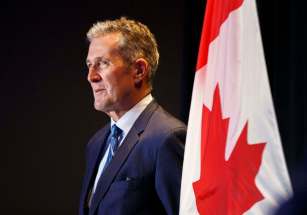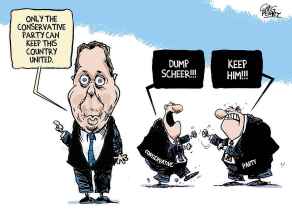In wake of fractured election, premiers a united front; they’re unanimous to requesting more federal funding
Read this article for free:
or
Already have an account? Log in here »
To continue reading, please subscribe:
Monthly Digital Subscription
$0 for the first 4 weeks*
- Enjoy unlimited reading on winnipegfreepress.com
- Read the E-Edition, our digital replica newspaper
- Access News Break, our award-winning app
- Play interactive puzzles
*No charge for 4 weeks then price increases to the regular rate of $19.00 plus GST every four weeks. Offer available to new and qualified returning subscribers only. Cancel any time.
Monthly Digital Subscription
$4.75/week*
- Enjoy unlimited reading on winnipegfreepress.com
- Read the E-Edition, our digital replica newspaper
- Access News Break, our award-winning app
- Play interactive puzzles
*Billed as $19 plus GST every four weeks. Cancel any time.
To continue reading, please subscribe:
Add Free Press access to your Brandon Sun subscription for only an additional
$1 for the first 4 weeks*
*Your next subscription payment will increase by $1.00 and you will be charged $16.99 plus GST for four weeks. After four weeks, your payment will increase to $23.99 plus GST every four weeks.
Read unlimited articles for free today:
or
Already have an account? Log in here »
Hey there, time traveller!
This article was published 02/12/2019 (2204 days ago), so information in it may no longer be current.
There’s only one thing that really matters when Canada’s premiers get together every year to talk about the state of the nation: money, and how to get more of it from Ottawa.
Nothing else really registers at these annual conferences, where premiers sit around large conference-room tables and talk about the need to “strengthen the fabric of the nation.” High level provincial bureaucrats show up armed with pre-written drafts of joint “communiques,” which are updated and distributed to eager journalists looking for some shred of news to report.
Pallister pushes premiers in focus on health dollars

Posted:
MISSISSAUGA, ONT. — Canadian premiers are asking Ottawa for more cash for the oil patch and health care, as well as more autonomy over megaprojects, while avoiding topics where provinces and territories don't agree.
In the end, the only real objective for the provinces is to forge a united front on how to squeeze more cash out of the federal government. That was the case again Monday when Canada’s premiers met in Mississauga, Ont.
Publicly, provinces love talking about important “national” issues like health care, education, and child care (and how they need more federal money to pay for them). When premiers discuss the need for the federal government to invest in “Canadian priorities,” what they really mean is they want larger bags of money from Ottawa, with as few strings attached as possible.
This year’s premiers’ conference may have had a slightly different bent to it, given the results of the October federal election, which saw the Trudeau Liberals shut out in Alberta and Saskatchewan. But after all the talk of national unity was over, the conversation — as it always does — turned to why the provinces deserve more money from Ottawa, and how important that is to national unity. The trick was trying to find consensus on how that money should flow.
Resource-based provinces Alberta, Saskatchewan and Newfoundland want a beefed-up fiscal stabilization program. It’s a reasonable ask, considering the economic hardship those provinces are facing due to historically low oil prices. Right now, the fiscal stabilization program — which provides federal funding to provinces that experience revenue declines — has a cap of $60 per person. That’s little more than lunch money for provinces with multi-billion dollar budgets (Alberta’s is $56.5-billion this year).
When premiers discuss the need for the federal government to invest in “Canadian priorities,” what they really mean is they want larger bags of money from Ottawa, with as few strings attached as possible.
Provincial premiers were unanimous in demanding Ottawa enrich the program by lifting the cap and changing the formula.
Trouble is, that wouldn’t help have-not provinces like Manitoba and New Brunswick, who don’t qualify for fiscal stabilization money because they haven’t experienced revenue declines. Those provinces rely more on equalization transfers to pay the bills, which oil-patch provinces such as Alberta are not qualified for. (Despite its economic hardship, Alberta is still the richest province in Canada).
Which is why the premiers also unanimously called for more health-care dollars from Ottawa through the Canada Health Transfer, as they do virtually every year.
The provinces reiterated their demand for a 5.2 per cent annual increase in the CHT, up from the current minimum of three per cent a year. It’s not just about the money, the premiers argued during their post-meeting press conference. It’s about “nation building.” Manitoba Premier Brian Pallister described it as showing “solidarity in our time.”

As part of that nation building and solidarity, the premiers also reminded the federal government of their right to opt out of any new federal spending scheme — like a national pharmacare program — with compensation. They’ll take the money. But they don’t want Ottawa to tell them how to spend it.
There were other issues raised in the premiers’ communique, including the need to promote economic development, create jobs and get resources to market.
But as usual, Monday’s meeting was mostly about getting more cash from Ottawa.
Where the federal government would get that money is anybody’s guess. The federal Liberals have grossly mismanaged the public treasury over the past four years after inheriting a balanced budget from the previous Harper government. Despite reasonably good economic times, the Liberals have created a structural deficit, with no plan to return to balance anytime soon. Which means they would have to borrow even more than they are now to beef up transfers to the provinces, leaving future generations to pay the bill.
Until Ottawa gets its own fiscal house in order, more money for the provinces seems like nothing more than a pipe dream.
tom.brodbeck@freepress.mb.ca

Tom has been covering Manitoba politics since the early 1990s and joined the Winnipeg Free Press news team in 2019.
Our newsroom depends on a growing audience of readers to power our journalism. If you are not a paid reader, please consider becoming a subscriber.
Our newsroom depends on its audience of readers to power our journalism. Thank you for your support.











